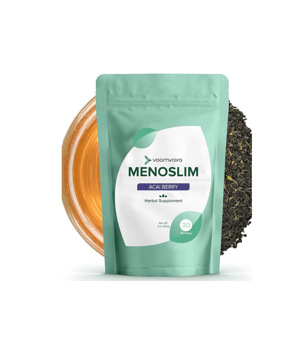When Can Perimenopause Begin: A Comprehensive Guide for Women 40+
Discover everything you need to know about perimenopause in our comprehensive guide for women aged 40 and over. Learn about the early signs of perimenopause, including common perimenopause symptoms and the hormonal changes that occur during this transition. Understand when perimenopause begins and what to expect during this vital life stage. Our tips on managing perimenopause symptoms and maintaining a healthy lifestyle will empower you to navigate this period with confidence. Whether you’re seeking information on perimenopause stages or effective wellness tips, this guide is designed to support your journey through perimenopause and beyond.
40+WELLNESSWOMEN'S HEALTHSELF CARESLEEP
The Better Life Team
8/25/20247 min read


Defining Perimenopause
Perimenopause represents a critical transitional phase in a woman's life, marking the period before she reaches menopause. During this time, a woman’s body gradually begins to produce less estrogen, a key hormone in regulating the reproductive system. This phase can last several years, often bringing about noticeable changes in menstrual cycles, physical health, and emotional well-being.
The onset of perimenopause typically occurs in women aged between 40 and 52, although the precise age can vary. This period is characterized by hormonal fluctuations, which can lead to irregular menstrual cycles, hot flashes, night sweats, and other symptoms. As the body adjusts to decreasing estrogen levels, these symptoms may become more pronounced.
Understanding the different phases of perimenopause is essential. The early phase may involve minor changes in menstrual cycle length, while the late phase is marked by increased irregularity and more pronounced symptoms. During these years, it is not uncommon for periods to vary from being lighter to heavier, shorter to longer, or occasionally skipping altogether.
Recognizing the signs of perimenopause allows women to manage their health proactively. Awareness of this transitional phase can also alleviate anxiety associated with the changes occurring in their bodies. Information and proper guidance during perimenopause are vital for adopting lifestyle changes, seeking appropriate medical advice, and improving the overall quality of life during this significant period.
For women around the age of 40-52, understanding perimenopause is crucial. This knowledge anchors their experiences in medical fact and equips them with the tools to navigate their journey toward menopause with confidence and clarity.
Typical Age of Perimenopause
Perimenopause typically begins for women between the ages of 40 and 52, marking the transitional phase leading up to menopause. This period can vary widely among individuals, with some women experiencing the first signs as early as their late 30s, while others may not encounter any changes until their mid-50s. According to the North American Menopause Society, the average age for the onset of perimenopause is 47.
Several factors can influence the timing of perimenopause. Genetics play a significant role, as women often enter perimenopause around the same age as their mothers or sisters did. Lifestyle choices such as smoking can also accelerate the onset of perimenopause by several years. Conversely, women leading healthier lives may experience it later. Health conditions like autoimmune diseases or those that affect the ovaries, including ovarian insufficiency, can also impact the timing.
Stress, body weight, and overall health are additional contributing factors. For instance, research indicates that women with higher body mass indices (BMIs) may enter perimenopause later than their leaner counterparts. Chronic stress is another potential accelerator of perimenopausal symptoms, potentially bringing about an earlier onset.
Statistical data from the Mayo Clinic indicates that approximately 1 percent of women experience what's known as premature perimenopause before the age of 40, often due to genetic factors or underlying health issues. Another noteworthy observation points out that women of different ethnic backgrounds may experience variations in the onset of perimenopausal symptoms, suggesting a diverse range of influences beyond the commonly listed factors.
Expert opinions underscore the importance of monitoring one’s health and understanding family history to better predict when perimenopause might begin. Regular consultations with healthcare providers can offer personalized insights and aid in managing this life transition effectively.


Common Symptoms of Perimenopause
Perimenopause, the transitional phase leading up to menopause, is marked by various physical and emotional changes. Recognizing these symptoms is crucial as they can often overlap with other health issues. Understanding these changes ensures that women can seek appropriate medical advice and support.
One of the most prominent signs of perimenopause is irregular periods. As the body's hormone levels fluctuate, the menstrual cycle may become inconsistent, causing periods to be late, early, or skipped altogether. This irregularity can be confusing and sometimes concerning, but it is a typical sign of perimenopause.
Breast Discomfort and Perimenopause
Breast discomfort or tenderness is another common symptom, linked to the body's hormonal variations. This discomfort may mimic the sensations experienced during the menstrual cycle but can be more pronounced during perimenopause. Women experiencing persistent breast pain should consider consulting a healthcare provider to rule out other conditions.
Exhaustion and Perimenopause
Exhaustion and frequent fatigue are also prevalent symptoms during perimenopause. The hormonal imbalances can lead to feelings of extreme tiredness and a lack of energy, impacting daily activities and overall quality of life. It is essential to differentiate this fatigue from other potential causes such as anemia, depression, or thyroid problems, by seeking a thorough medical evaluation.
Perimenopause and Missed Periods
Missed or skipped periods are a hallmark of perimenopause. These irregularities occur due to the declining production of estrogen and progesterone. While this can be a normal aspect of perimenopause, it is important to track these changes and discuss them with a healthcare provider, especially if there is a risk of other underlying conditions.
Period Cramps during Perimenopause
Lastly, period cramps can become more intense during perimenopause. The changing hormone levels can lead to more pronounced menstrual cramps, which can significantly affect a woman's comfort and daily functioning. Staying informed about these changes helps in preparing for and managing this phase more effectively.
In navigating the perimenopausal journey, distinguishing these symptoms from other health issues can be challenging. Therefore, engaging with a healthcare provider is vital for accurate diagnosis and appropriate care. By maintaining awareness and seeking professional guidance, women can better manage their symptoms and maintain their well-being during this transitional period.
Managing Symptoms: Tips and Suggestions
Perimenopause can often be a challenging phase, marked by a variety of symptoms that disrupt daily life. While each woman’s experience is unique, some general strategies can help manage these symptoms effectively. Adopting a balanced diet is crucial. Incorporate foods rich in calcium and vitamin D to support bone health, and emphasize whole grains, lean proteins, fruits, and vegetables to maintain energy levels and stabilize mood swings.
Regular exercise is another key element for managing perimenopause symptoms. Engaging in physical activities like walking, yoga, or swimming can alleviate stress, improve sleep quality, and enhance overall well-being. Exercise has the added benefit of helping to maintain a healthy weight, which is important since weight gain is a common concern during perimenopause.
Stress management techniques are equally important. Practices such as mindfulness, deep-breathing exercises, and meditation can significantly reduce stress levels. These techniques not only help in managing anxiety and depression, which can be exacerbated during perimenopause but also contribute to a better hormonal balance and reduced symptom severity.
In addition to lifestyle changes, medical options like hormone therapy might be considered. Hormone therapy can help in alleviating severe symptoms such as hot flashes and night sweats. However, it’s crucial to discuss the risks and benefits with a healthcare provider. Regular check-ups are essential to monitor overall health and manage any emerging symptoms promptly.
Breast Tenderness and Perimenopause
Self-care is another vital aspect. To manage breast tenderness, consider wearing a supportive bra and using over-the-counter pain relievers if needed. For exhaustion, prioritize rest, and establish a regular sleep routine. Dealing with irregular periods can be less stressful by keeping track of menstrual cycles and wearing appropriate protection.
Incorporating these tips and suggestions into daily life can make the transition through perimenopause smoother and more manageable, promoting better health and quality of life.


Our picks for relief, backed by great reviews:
Get menopause support supplements
Probiotics for Women Digestive Health, Menopause | Sexy Midsection Curves, Bloat, Joint Support
get cooling luxury gel pillows
Shredded Memory Foam Pillows Adjustable Cool Pillow for Side Back Stomach Sleepers Luxury Gel Pillows
get instant cooling wristband hot flashes
Cooling Wristband with Instant Relief from Hot Flashes, Menopause Bracelet | Helps Improve Sleep | Lightweight, Portable & Rechargeable






Our picks for relief, backed by great reviews:
Get MenoSlim Tea - Perimenopause
Natural Menopause Supplements, Perimenopause & Estrogen Supplement for Women - For Bloating, Hot flashes, Night Sweats & Meno-Belly
get natural jar candles for Stress Relief, Meditation, Yoga, Relaxing SPA
relief of stress and help with sleep, relaxing spa
get Intense Hydration Moisturizer for Face and Body
Strengthens Skin Barrier + Instantly Relieves Dry, Distressed Skin, beneficial to dryness during menopause






Seeking Medical Advice and Support
Navigating the journey of perimenopause can bring about numerous physical and emotional changes. As women approach this significant life transition, it becomes crucial to seek medical advice and support. Consulting healthcare providers ensures that severe symptoms, mental health concerns, and overall wellbeing are addressed comprehensively.
Healthcare professionals, including gynecologists and primary care physicians, can offer invaluable insights into managing perimenopausal symptoms. Severe physical symptoms such as hot flashes, night sweats, and irregular menstrual cycles can significantly impact quality of life. A healthcare provider might recommend hormone replacement therapy (HRT), lifestyle adjustments, or alternative treatments to mitigate these symptoms.
Mental health is another critical aspect of this transition. Feelings of anxiety, depression, and mood swings can accompany hormonal fluctuations. Addressing these concerns with a mental health professional, such as a counselor or psychologist, can provide coping strategies and therapeutic interventions tailored to individual needs. It's important to remember that mental health is just as crucial as physical health, and seeking help can lead to overall improved wellbeing.
Besides one-on-one consultations, abundant resources are available for women seeking communal support and shared experiences during perimenopause. Support groups, either in-person or online, can provide a sense of community and shared understanding. Organizations such as the North American Menopause Society (NAMS) offer a wealth of information, including educational materials and connections to local support groups.
Women should also consider counseling services that specialize in midlife transitions. These services can address concerns that go beyond symptoms, encompassing broader aspects such as life changes, self-identity, and relationships. Counseling can be a powerful tool in navigating this new stage of life.
Ultimately, perimenopause is a natural part of aging, and seeking medical advice and community support helps ensure that women do not have to face this transition alone. With the right resources and professional guidance, managing perimenopause can become a proactive and empowering experience.
DISCLAIMER: THIS BLOG MAY CONTAIN AFFILIATE LINKS, MEANING I GET A COMMISSION IF YOU DECIDE TO MAKE A PURCHASE THROUGH MY LINKS, AT NO COST TO YOU